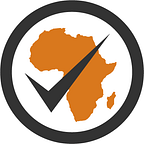Does Gauteng make up a third of South Africa’s GDP? And is it Africa’s seventh biggest economy?
Claim: Two claims on the size of Gauteng’s economy
Source: Gauteng premier David Makhura (November 2018)
Verdict: Both claims correct
Explainer:
- Gauteng premier David Makhura told the Africa Investment Forum his province made up 35% of South Africa’s GDP and was the seventh largest economy in Africa.
- In 2016 South Africa’s total GDP was R4.35 trillion. Gauteng’s contribution was R1.5 trillion, or 34.64%.
- African Development Bank data suggests Gauteng’s GDP was some US$100 billion in 2016, making its economy the seventh largest in Africa.
Researched by Cayley Clifford
South Africa’s Gauteng province beat several other African locations to host the Africa Investment Forum, premier David Makhura said in early November.
Makhura was speaking at the opening of the regional meeting in Johannesburg, which sought to seal billions in investment deals.
To highlight Gauteng’s attractiveness to African finance and industry, Makhura made two claims about the size of the province’s economy. We tested them against the best available evidence.
Claim: “Gauteng contributes 35% to South Africa’s GDP.”
Verdict: Correct
Gauteng was the “leading financial nerve centre and manufacturing hub of sub-Saharan Africa”, Makhura said. “We contribute 35% to our country’s GDP.”
We contacted his office for the source of his data but they are yet to respond. (Note: We will update this report should they do so.)
A country’s gross domestic product is the measure of the size of its economy. It is the market value of all goods and services produced in a country in a given period, usually a year. Any economic activity will increase GDP — as long as the activity is recorded.
Statistics South Africa, the national data agency, records the nine provinces’ contribution to the country’s economy. Its most recent data puts South Africa’s total GDP at R4.35 trillion in 2016. Gauteng’s contribution was R1.5 trillion, or 34.64%.
How is GDP calculated?
When compiling the data, the agency used a “bottom-up approach”, Stats SA chief economist Bontlenyana Makhoba told Africa Check.
“All the industries that we look at will have different data sources. So if, for example, we are looking at agriculture, we will work with the department of agriculture. If it’s mining, we will work with the department of mineral resources… so it depends on what you are looking at.”
Provincial contributions were calculated at current rates, which meant they “include all changes in market prices that have occurred during the year due to inflation”, Makhoba added.
Stats SA’s Gauteng GDP estimate sounded “about right”, Prof Jannie Roussouw, the head of the school of economic and business sciences at the University of Witwatersrand, told Africa Check.
“It might be slightly skewed because many head offices are registered here in Gauteng but they have activities in other provinces.” He said the province had been South Africa’s economic heartland for years.
Claim: “Gauteng is the seventh largest economy in Africa.”
Verdict: Correct
Gauteng was key to trade and other connections between the continent’s economies, Makhura said, and was “the seventh largest economy in Africa”.
Comparing the GDP of different geographical regions was accepted practice, said Grieve Chelwa, who lectures economics at the University of Cape Town’s Graduate School of Business. It’s a useful way to better understand the size of an economy.
“For example, it’s far easier if I say ‘if California were a country it would be the xth largest country by economy’ than if I gave you some absolute statement about the actual size of California’s GDP,” Chelwa told Africa Check.
“So the premier is perfectly correct to make that statement.” The expectation was that Gauteng’s GDP had been calculated correctly, he said, without produce from other provinces being added. “This is much harder to do in practice.”
The African Development Bank has data on the GDP of 54 African countries in 2016. Africa’s total economic output was measured at US$2.259 trillion.
Gauteng’s 35% share of South Africa’s estimated GDP of $285.8 billion would be $100 billion, placing it seventh — ahead of Kenya, Ethiopia and Tanzania.
Further reading:
Is Africa’s entire GDP equal to that of France? Obama is mostly correct
Townships contribute R100bn to South Africa’s economy? No way to tell
© Copyright Africa Check 2017. You may reproduce this piece or content from it for the purpose of reporting and/or discussing news and current events. This is subject to: Crediting Africa Check in the byline, keeping all hyperlinks to the sources used and adding this sentence at the end of your publication: “This report was written by Africa Check, a non-partisan fact-checking organisation. View the original piece on their website”, with a link back to this page.
Originally published at africacheck.org.
